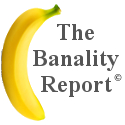So can most humans, but this is fairly modern.
In the world today, approximately 86% of adults can read*, that is, they are literate. Writing, and the capacity to read that writing is undoubtedly one of the human species’ greatest achievements, and it’s difficult for those who can read to imagine a time when there was no such thing as writing a note to remind yourself to pick up milk at the grocery store*. Some might say it is a travesty that 14% of the world’s adults still cannot read. Perhaps it is, but it’s important to know how far we have come to get to this point.
Despite being able to speak language for at least 35,000 years, and possibly as long as 100,000 to 200,000 years, the written word is a fairly modern invention. For most of human existence, most of us were illiterate. Starting around 3500 B.C. people invented writing, probably in Sumeria. Cuneiform was primarily used to manage public accounts and records as cities and civilization grew, and power became more bureaucratic. Only a few elite people learned how to read or write.

The first evidence of books, that is bound parchment between “covers” instead of scrolls that had been used for thousands of years prior, comes from the Roman Empire, and scholars have estimated that between 5-10% of those in the Roman world were literate*. After Rome fell, literacy plummeted, and it was not until the 1400’s with the invention of the Gutenberg Printing Press that literacy rates started to significantly increase again.
In 1475 in Britain, literacy was approximately 5%, while in Italy it was approximately 15%, one of the highest known at that time in the world. By 1820, the world adult literacy rate had increased to only 12%. By 1900, it was still fairly low at 21%, but in the United States and parts of Europe, the rates were between 70% and 80% or higher. The rest of the world began to catch up in the 20th Century. Literacy for the world’s adults jumped to 68% in 1976 and continued to increase until our present levels of 86%.

There are many reasons why literacy is important. Written language allows us to share knowledge across time and space more accurately. It increases the capacity for human invention by granting significantly more people access to learn, hone new ideas, and share those ideas with the world, which are then further refined by other people. When more people are thinking, reading, writing, and inventing ideas and tools, the better our all our lives become. Reading literature has also been shown to increase empathy for others. When we read a novel, and get to see the world through the perspective of a character who seems very different from ourselves, we learn they are very much like us after all.
Importantly, writing has allowed me to share this very banal report with you, Dear Reader.
— This has been your very banal report —
Hover over any * to see some Extra Facts for Nerds within the article text.
Check out this amazing interactive chart fromhttps://ourworldindata.org showing literacy rates by country from 1475!
Learn more from the other sources (in addition to the above chart) used for this article:
- https://ourworldindata.org/literacy
- https://www.oecd-ilibrary.org/economics/how-was-life/education-since-1820_9789264214262-9-en
- https://read.oecd-ilibrary.org/economics/how-was-life/literacy-by-years-of-schooling-completed-in-the-united-states-1947_9789264214262-table25-en#page1
- https://data.worldbank.org/indicator/se.adt.litr.zs
- https://www.hbs.edu/businesshistory/courses/resources/historical-data-visualization/Pages/details.aspx?data_id=31
- https://academicpartnerships.uta.edu/articles/education/brief-history-of-literacy.aspx
- https://www.ancient.eu/writing/
- https://brewminate.com/books-brief-history-development-trends-and-current-technology/
- https://www.history.com/topics/inventions/printing-press
- https://www.scientificamerican.com/article/novel-finding-reading-literary-fiction-improves-empathy/?redirect=1
- https://www.theguardian.com/books/2016/aug/23/literary-fiction-readers-understand-others-emotions-better-study-finds
- Kaestle, Carl F. “The History of Literacy and the History of Readers.” Review of Research in Education 12 (1985): 11-53. http://www.jstor.org/stable/1167145
- Curchin, Leonard A. “Literacy in the Roman Provinces: Qualitative and Quantitative Data from Central Spain.” The American Journal of Philology, vol. 116, no. 3, 1995, pp. 461–476. JSTOR, www.jstor.org/stable/295333
